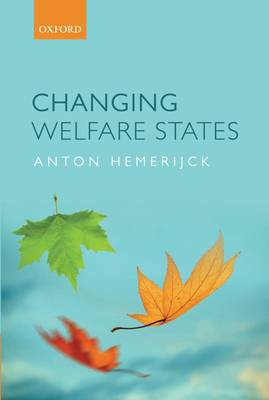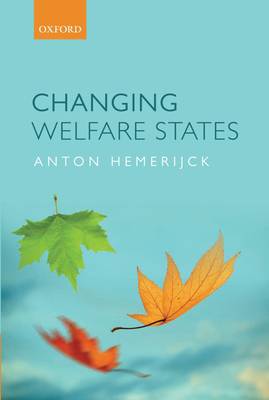
- Afhalen na 1 uur in een winkel met voorraad
- Gratis thuislevering in België vanaf € 30
- Ruim aanbod met 7 miljoen producten
- Afhalen na 1 uur in een winkel met voorraad
- Gratis thuislevering in België vanaf € 30
- Ruim aanbod met 7 miljoen producten
Zoeken
Omschrijving
Changing Welfare States is major new examination of the wave of social reform that has swept across Europe over the past two decades. In a comparative fashion, it analyses reform trajectories and political destinations in an era of rapid economic, social, and political restructuring, including the critically important dimension of European integration. The book argues that the overall scope of social reform across the member states of the European Union varies widely. In some cases welfare state change has been accompanied by deep social conflicts, while in other instances unpopular social reforms received broad consent from opposition parties, trade unions and employer organizations. The analysis reveals trajectories of welfare reform in many countries that are more proactive and reconstructive than is often argued in academic research and the media. Alongside welfare retrenchments, there have been deliberate attempts to rebuild social programs and institutions to accommodate
policy repertoires to the new economic and social realities of the 21st century in many advanced European welfare states. Welfare state change is work in progress, leading to patchwork mixes of old and new policies and institutions, on the lookout, perhaps, for greater coherence. Unsurprisingly, that search process remains incomplete, resulting from the institutionally bounded and contingent adaptation to new social realities.
policy repertoires to the new economic and social realities of the 21st century in many advanced European welfare states. Welfare state change is work in progress, leading to patchwork mixes of old and new policies and institutions, on the lookout, perhaps, for greater coherence. Unsurprisingly, that search process remains incomplete, resulting from the institutionally bounded and contingent adaptation to new social realities.
Specificaties
Betrokkenen
- Auteur(s):
- Uitgeverij:
Inhoud
- Aantal bladzijden:
- 360
- Taal:
- Engels
Eigenschappen
- Productcode (EAN):
- 9780199607600
- Verschijningsdatum:
- 8/02/2013
- Uitvoering:
- Paperback
- Formaat:
- Trade paperback (VS)
- Afmetingen:
- 229 mm x 155 mm
- Gewicht:
- 754 g

Alleen bij Standaard Boekhandel
+ 106 punten op je klantenkaart van Standaard Boekhandel
Beoordelingen
We publiceren alleen reviews die voldoen aan de voorwaarden voor reviews. Bekijk onze voorwaarden voor reviews.











